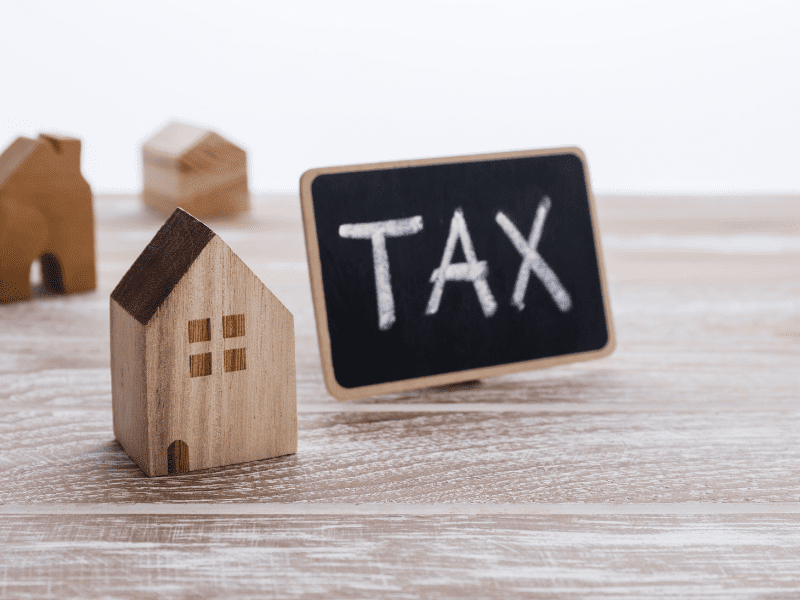July 29, 2024 | Selling
Will I Be Taxed on the Sale of My Home?

Navigating the financial aspect of selling your house can be overwhelming and stressful, as it’s not always clear what the true costs are. While there are various costs associated with selling a home, one of the most commonly misunderstood aspects is the taxes associated with selling a home. In Massachusetts, there are two taxes that you will run into upon selling your home, capital gains tax and stamp tax.
Whether you’re an experienced investor, a new homeowner, or simply someone looking to understand how these taxes impact your financial decisions, having a clear understanding of these taxes is essential.
Stamp Tax
Once you have lived in Massachusetts for a while you realize just about everything gets
taxed. However, what most Massachusetts first-time home sellers do not realize, is there is a tax on selling your home. This tax on selling a home is known as the Massachusetts Stamp Tax.
In the majority of Massachusetts, the tax stamp equals $4.56 per thousand dollars of the sales price of the home. For example, if you sell your home for $500,000, you would owe the State of Massachusetts $2,280.00 ($4.56 x 500). The money paid for the tax stamps is income given to the county registry in which your home resides and is further given to the Commonwealth of Massachusetts Department of Revenue.
While most of Massachusetts is taxed at $4.56 per thousand dollars, it should be noted that in Barnstable County the tax rate is $5.70 per thousand. Therefore the cost involved with selling a property is slightly higher in that district. The Dukes and Nantucket Counties also charge an additional 2% of the sales price that gets forwarded to the local land bank commission.
Looking to sell your home soon? Explore these blog posts for helpful tips on achieving a great sale!
- When is the Right Time to Sell My Home?
- When Does it Work to Sell Your Home First?
- A Seller’s Guide to Property Values
Capital Gains Tax
Another tax that is due upon the sale of your home is the capital gains tax. The capital gains tax is a tax on the profit made from selling your house for a higher price than what you bought it for. If you happen to have a loss after selling your home, it can be used as a deductible on your tax returns, too.
The tax rate for capital gains tax varies depending on taxable income and the length you have held the asset (house). A long-term capital gain is a profit made from the sale of a property that you own for longer than one year, while short-term is owned for less than one year. Typically, a long-term capital gain tax has a lower tax rate than short-term so it is beneficial for a homeowner to sell only after they have reached the 1-year mark of ownership.
The rate for long-term assets ranges from 0% to 20% depending on the amount of taxable income. To find out what your bracket and rate would be, check out information from the IRS on this website. In contrast to long-term rates, short-term rates range from 10% – 37% but still depend on income. Gains from short-term assets are taxed as regular income, so your rate will be the same as your typical income tax rate.
Have more questions about selling your North of Boston home? Explore these related blogs for answers.
- Home Selling FAQ
- 5 Renovations to Make Your Home Sale More Profitable
- How to Declutter Your Home Before Selling
What Exclusions Are Available?
One of the differences between capital gain and stamp tax is that you can file for exclusions from capital gains tax. Exemptions are applicable if the home sold has been your primary residence for two of the last 5 years. If you are single and file your taxes individually, you can be exempted from up to $250,000 of capital gains tax. Additionally, if you are married and jointly file taxes with your spouse, you can be exempted from up to $500,000 of capital gains tax. If you do not qualify for exemptions, the gain will be taxed with the respective long-term or short-term rates.
These exemptions can be substantial. To minimize the amount of capital gains tax, you should at least live in the home as your primary residence for 2 of the 5 years before the sale. If applicable, you should also file jointly with your spouse to have a larger exclusion limit. Additionally, for more information on how to minimize the amount of capital gains tax you owe, check out some unique exemptions here.
Get Help From an Expert
While working with Andersen Group Realty, our team will ensure that you have clarity on all of the various costs associated with the sale of your home. We want to ensure that no surprises arise and that you are well-prepared to deal with the financial obligations of a sale.
If you have further questions or curiosities about the stamp or capital gains tax, please contact us at 781-729-2329 and we will guide you in the right direction for your needs.

